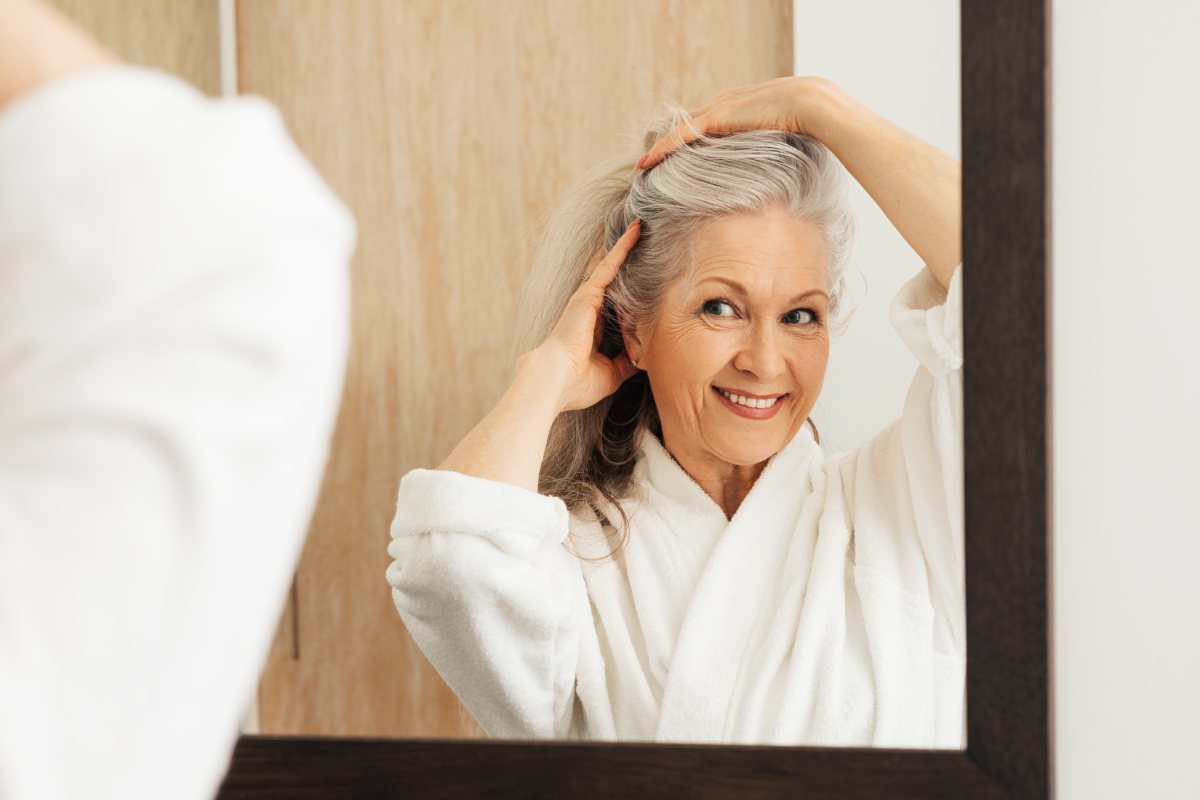
Hormones play a critical role in maintaining the health and appearance of our skin and hair. As we age or experience hormonal changes due to menopause, pregnancy, or other life stages, we often notice visible changes in our skin and hair. These changes can include dryness, thinning hair, acne, and the development of fine lines and wrinkles. Fortunately, hormone therapy can offer significant benefits for those seeking to improve their skin and hair health by restoring balance to their hormone levels.
The Connection Between Hormones and Skin Health
Estrogen, progesterone, and testosterone are the primary hormones that affect the health of our skin. Estrogen is particularly important for skin elasticity, moisture, and thickness. As women approach menopause, estrogen levels decline, which can lead to drier, thinner skin that is more prone to wrinkles and sagging. Without enough estrogen, the skin’s ability to retain moisture diminishes, and collagen production, which gives skin its structure and firmness, decreases.
Testosterone, though more commonly associated with men, also affects the skin of women. High levels of testosterone can contribute to the development of acne and other skin issues by stimulating sebaceous glands to produce more oil. These imbalances can lead to clogged pores and breakouts.
In addition, cortisol (the stress hormone) can affect skin health. Chronic stress can elevate cortisol levels, leading to inflammation, premature aging, and skin conditions like eczema or psoriasis.
How Hormone Therapy Helps Improve Skin Health
Hormone therapy (HT) works by restoring hormonal balance, addressing the underlying causes of skin issues, and helping the skin regain its youthful glow. For women experiencing menopause, estrogen therapy can help counteract the dryness and thinning skin that often accompanies the reduction of estrogen levels. Estrogen not only improves skin hydration but also supports collagen production, helping to reduce fine lines and maintain skin’s elasticity.
Progesterone, which works alongside estrogen, also plays a role in skin health. It helps regulate oil production, reducing the risk of acne that can occur when estrogen and testosterone are out of balance. Progesterone also has anti-inflammatory effects, which can help calm irritated skin and reduce redness or puffiness.
Testosterone therapy, when carefully managed, can promote healthier hair growth and restore volume to thinning hair, particularly in individuals experiencing hormonal imbalances that affect hair health.
How Hormone Therapy Benefits Hair Health
Our hair follicles are sensitive to hormonal changes, which is why hair thinning and loss are often experienced during periods of hormonal fluctuation, such as pregnancy, menopause, or stress. During menopause, for instance, the drop in estrogen levels can cause hair to become thinner and more brittle, while higher levels of testosterone may lead to male-pattern baldness in both men and women.
Testosterone replacement therapy can be especially beneficial for transgender men, as it stimulates the growth of facial and body hair, which helps them achieve a more masculine appearance. Conversely, estrogen therapy for transgender women may help reduce excessive body hair growth by balancing the levels of testosterone, resulting in smoother skin.
For individuals experiencing hair thinning or loss due to aging or hormonal imbalances, hormone therapy can help stimulate hair regrowth by rebalancing testosterone and estrogen levels. This can lead to fuller, thicker hair over time, improving self-esteem and confidence.
The Psychological Benefits of Improved Skin and Hair Health
The impact of hormone therapy on skin and hair health extends beyond just physical appearance—it can also have a positive effect on mental well-being. As skin becomes more vibrant and youthful and hair appears fuller and healthier, many individuals experience a boost in self-confidence. This renewed sense of confidence can improve overall mood, reduce feelings of stress, and enhance quality of life.
Improved skin and hair health can also make it easier to engage with the world around you. Whether it’s wearing less makeup, feeling comfortable in your natural appearance, or simply enjoying the reflection you see in the mirror, the benefits of restored skin and hair health go beyond the surface.
Considerations and Risks
While hormone therapy can significantly enhance skin and hair health, it’s important to approach it with the guidance of a healthcare provider. Every individual has different needs, and a tailored hormone therapy plan should be developed based on your specific health profile, including any underlying conditions or medications you may be taking. It’s important to monitor hormone levels throughout treatment to ensure the best results and to manage any potential side effects, such as increased risk of blood clots or hormone-related cancers.
Conclusion
Hormone therapy can be a transformative treatment for individuals seeking to improve their skin and hair health. By restoring hormonal balance, hormone therapy addresses many of the underlying causes of skin and hair issues, from acne to thinning hair to the signs of aging. Whether you’re experiencing the effects of menopause, aging, or other hormonal changes, hormone therapy can help you restore your skin’s youthful glow and improve the health and volume of your hair. If you’re considering hormone therapy to enhance your skin and hair, consult with a specialist to learn more about how it can benefit you and help you achieve your wellness goals.
